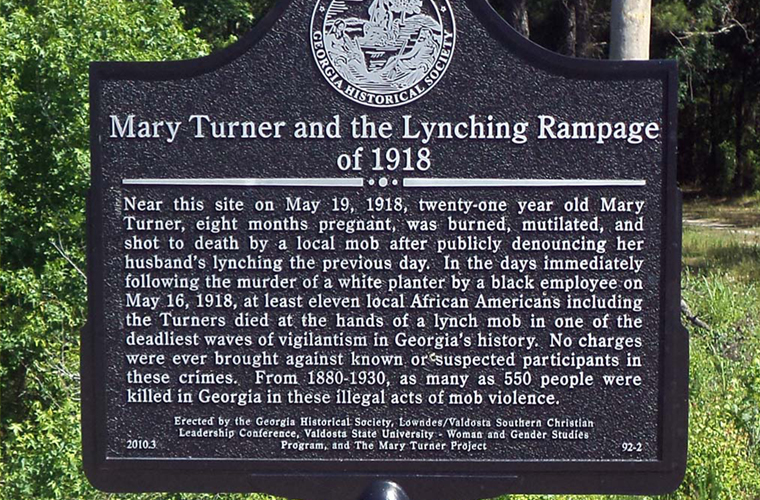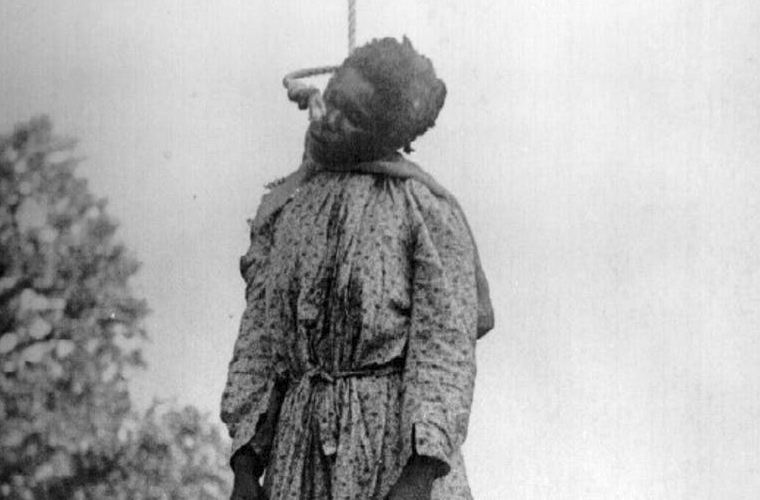The lynching of Mary Turner was a tragic event that took place in 1918 in Lowndes County, Georgia, during a period of intense racial violence and oppression in the United States. Mary Turner, an African American woman, became a victim of mob violence after speaking out against the lynching of her husband, Hayes Turner.
 The events leading up to Mary Turner’s lynching began on May 16, 1918, when a white plantation owner named Hampton Smith was killed by one of his black workers. In the aftermath, a massive wave of violence swept through the county, targeting the African American community. A mob captured Hayes Turner, accusing him of being involved in Smith’s murder. He was taken into custody but was soon dragged out of jail and brutally lynched.
The events leading up to Mary Turner’s lynching began on May 16, 1918, when a white plantation owner named Hampton Smith was killed by one of his black workers. In the aftermath, a massive wave of violence swept through the county, targeting the African American community. A mob captured Hayes Turner, accusing him of being involved in Smith’s murder. He was taken into custody but was soon dragged out of jail and brutally lynched.




















Mary Turner, who was eight months pregnant at the time, publicly denounced her husband’s lynching and threatened to seek justice through legal means. Her words angered the white mob, who decided to take swift and brutal action against her. On May 19, a mob abducted Mary Turner and brought her to Folsom’s Bridge, near the Brooks County line. There, they subjected her to a horrific and sadistic lynching.
Mary Turner was tied by her ankles, hung upside down from a tree, and set on fire. While she was still alive, the mob cut open her abdomen, causing her unborn child to fall to the ground. The mob then stomped and crushed the baby’s body. Finally, they shot Mary Turner multiple times, ending her life. Her body was left hanging from the tree as a gruesome warning to others.
The lynching of Mary Turner gained national attention and sparked outrage among many Americans who were appalled by the brutality of the act. The NAACP and other civil rights organizations condemned the lynching and called for justice, but no one was ever held accountable for the crime.
Mary Turner’s lynching remains a stark and haunting symbol of the racial violence and terrorism faced by African Americans during the era of Jim Crow segregation. It stands as a painful reminder of the injustices perpetrated against black individuals and communities and the struggle for racial equality in the United States.

